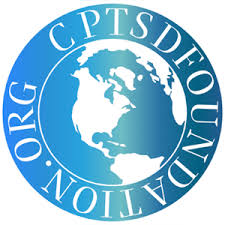Call for Writers
If you’re passionate about writing and inspiring others, or if you’re new to writing and simply want to share your story, we want to hear from you!
If you’re a clinician, coach, or other mental health professional; yes, we want to hear from you too!
The blog at CPTSD Foundation focuses on all aspects of complex trauma recovery, as well as educating, inspiring, and raising awareness about the mental health struggles that survivors of trauma face on a daily basis.
If you have a knack for writing and want to make a difference in someone’s life, through the power of the written word, then please read on to learn more about writing for us, and fill out our contact form at the bottom of the page.
We look forward to collaborating with you!

Staff Writer Guidelines and Information
Sharing your personal story: This is a format that some guest bloggers prefer; talking about your own life and story as a complex trauma survivor. You can include things such as the struggles you faced while the traumatic events were actively taking place, how you coped, your support system (or lack thereof), what it was like on a daily basis both then and now, etc.
Remember to be mindful of privacy; consider changing names and places in order to not disclose information you aren’t comfortable with. Use appropriate details in order to accurately tell your story, but try to avoid intense graphic details and imagery that may be overly triggering.
A Mental Health Challenge or Mental Illness that you are passionate about: CPTSD Symptoms, CPTSD Awareness, Suicide Awareness & Prevention, Anxiety Disorders, Dissociative Disorders, Eating Disorders, etc. As long as it pertains to healing from trauma.
Partner Support: If you are a spouse, partner, friend, or sibling to a complex trauma survivor, or you have an active role in the life of someone who struggles with complex trauma symptoms. Your insight and experiences could help others who are in a similar role and looking for support.
Research you’ve done in a particular area of complex trauma recovery, factors that contribute to complex trauma, coping skills to aid in healing from complex trauma, etc.
The following are best practices to consider implementing when submitting a guest post for our blog.
We understand not everyone is a professional writer, and that’s OK! Our team is here to help.
Length: A blog post should be 600 – 1200 words, though a longer or shorter blog will be considered based on the judgment of the editor.
Headline: Each story should include a powerful headline (3-7 words is ideal, but no more than 10). The heading should arouse curiosity and expectation. It should be engaging but not cryptic or ambiguous. (Our editing team will help if you cannot come up with something.)
Sub-Headings: Good blog posts are easier to read when you can break up your content a bit. Consider using subheadings to break apart the language into smaller sections.
Narrative Mode: First or third-person modes are both appropriate.
Reader Value: Blogs should seek to deliver intellectual value to readers by sharing something they don’t know or offering an insight they may not have thought of, rights
Call to Action: (when appropriate): Consider using a Call to Action (CTA). Although not necessary in every piece, when offering hope it is worthwhile to provide other helpful information regarding what’s next. Learn more about CTA’s here: https://www.youtube.com/watch?v=SvpxD2eTLFo
Images: Our team will supply a royalty free image for use as a Featured Image for your post, based on the theme of your content. Please do not submit any of your own photos or artwork, as we are not able to include them in your post due to possible copyright infringement situations.
Video Blogs: Video blogs are acceptable, but the content should be thought out, concise, and not run too long. In many cases, videos should be edited into snippets and incorporated into a written post.
Author: Each blog post should include a headshot of the author as well as a few sentences of biographical information. Feel free to include links to your social media platforms. (Anonymous blogs will be considered, and you may also use an alias name if you don’t feel comfortable using your real name.)
Links to Sources: All data sources should be cited. Quoted text should be properly attributed.
Language and Grammar:
1. Avoid mixing tenses
2. Use short sentences instead of long clauses and sub-clauses that run on.
3. Use bullet points if the context allows it.
4. Use Grammarly to confirm spelling and grammar before submitting.
In Addition
Full Credit
You will always be given full credit for each one of your submissions that we publish on our blog. In addition, you’ll be given a contributor account on our website.
Reach a Large Audience
Your article will appear on the front page of our website for 3 weeks and listed permanently on our blog page: searchable by the thousands of our website visitors each week.
Article Reference
We may also use your article as a reference on one of our Daily Recovery Support Calls. If we do, we’ll contact you, and give you the option to join us and talk about your work.
Making a Difference
You can feel good knowing you are making a difference in someone’s life. Your dedication to writing can help educate, validate, and encourage someone who truly needs it.
Ready to Get Started?
Fill out the informational form below, and we’ll be in contact with you soon.
